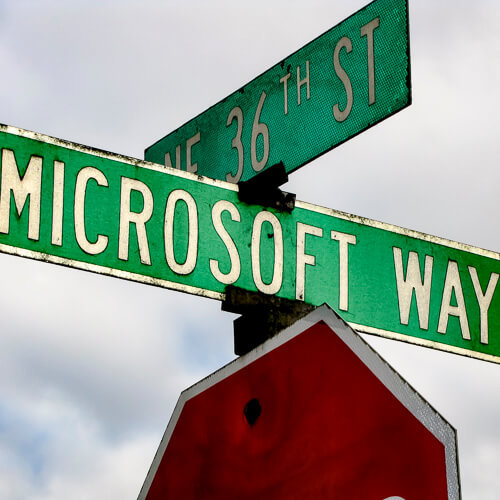Microsoft gets Nuanced in $19.7B voice-rec buy
Microsoft sees cloud services boost its net income by a yearly 33%, up to $15.5 billion, as the Redmond tech giant now cocks an eye at telcos.

It is the disease of not listening that I am troubled with, said Falstaff and Satya Nadella.
And so Microsoft has today become a bit more Nuanced, buying the maker of the Dragon voice-recognition software for $19.7 billion in its second-largest acquisition yet.
With more and more meetings happening online, and its flashier rival Zoom offering integrated transcription with Otter, Microsoft clearly sought a dance partner for Teams.
Nuance also is a big player in the health care transcription market, which oddly seems to be booming at the moment. Right now, 77% of US hospitals and a half million doctors use Nuance's Dragon Medical One platform.
Microsoft and greater Boston-based Nuance have already worked together in digitizing health records since 2019.
"AI is technology's most important priority, and healthcare is its most urgent application," Nadella said on Twitter.
Seen one shop, seen the mall
Among Microsoft's big-ticket purchases, this trails only LinkedIn, for $26 billion in 2016.
Eleventh-hour speculation had Redmond valuing Mark Benjamin's tech company of 7,000 at a mere $16 billion. (The extra $3.7 billion represents Nuance's net debt, which Microsoft acquires.)
Benjamin remains Nuance's CEO, reporting to Scott Guthrie, Microsoft's executive VP for cloud and AI.
And Nadella doesn't seem to be waiting for all the shops to reopen for his spending spree.
Last month, Microsoft bought games company ZeniMax for $7.5 billion, the same price it paid for code repository GitHub two years ago.
"And y'all thought Bethesda was expensive," said one Xbox player on Twitter. (ZeniMax is the popular game publisher's parent.)
Redmond is now in talks to buy the communications app Discord, and has also been reportedly running the rule over TikTok and Pinterest.
Part of the reason for the shopping spree is Microsoft's avoidance of the Big Tech backlash that has kept Google and Facebook from making big acquisitions.
Beyond recognition
Nuance also licenses its voice recognition tech to Apple for Siri.
But up until last March, Nuance seemed to have been flagging. Its revenues hit $2 billion in 2018 but since then have fallen by a quarter, to $1.5 billion last year.
It made $29 million of overall profit last year, after a few years of losses.
As its revenues dropped over each of the last two years, Nuance spun off or sold many of its units in an attempt to rebuild its fortunes around cloud-based voice recognition systems for health care.
Of Nuance's 2020 revenues, 62% came from health care.
You must have called a thousand times
From Clippy to Cortana (removed from iOS and Android just this month), Microsoft's personal assistants have never quite taken over the world.
For all that, Microsoft has quite a bit of brainpower in the area of natural language processing AI.
Want to know more about AI and automation? Check out our dedicated AI and automation channel here on
Light Reading.
So Nuance might help Microsoft in its new-look goals of working conversational AI into its more enterprise-focused offerings, and Microsoft's Cloud for Healthcare especially, which launched last October.
All this gives Microsoft a bigger piece of a broader voice recognition market which is predicted to reach $2.7 billion by 2027.
The all-cash deal is expected to complete this year.
Related posts:
Unknown Document 768695
— Pádraig Belton, contributing editor special to Light Reading
About the Author(s)
You May Also Like




_International_Software_Products.jpeg?width=300&auto=webp&quality=80&disable=upscale)







